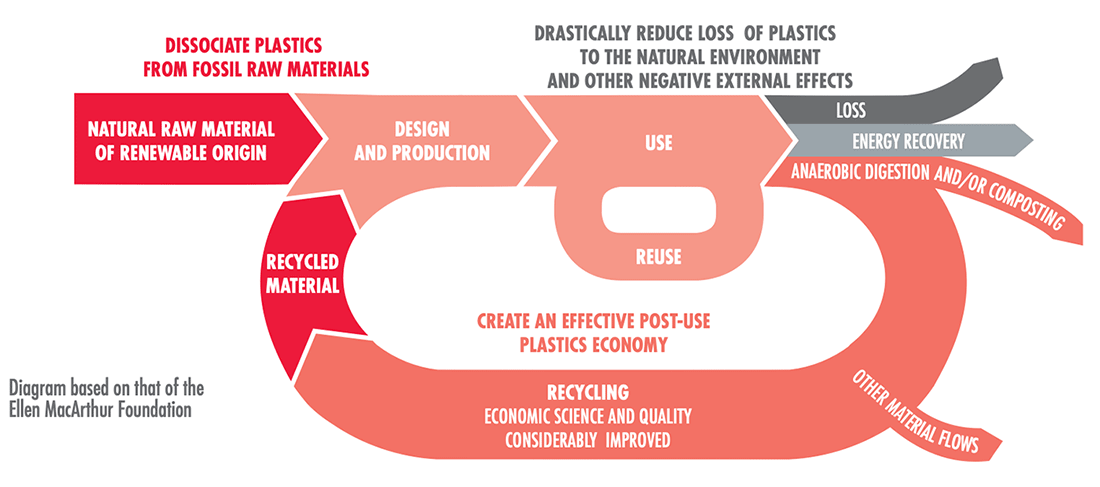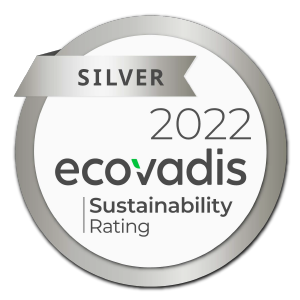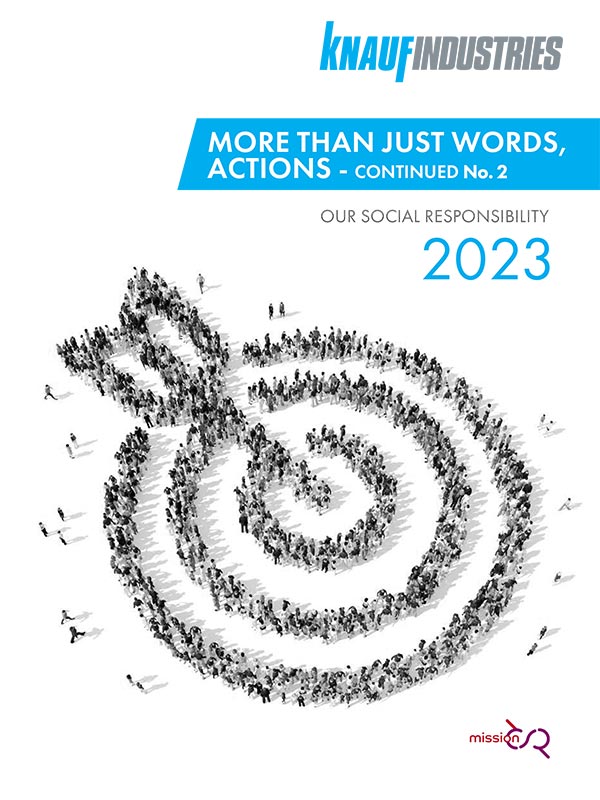Knauf
CSR strategies
The best examples and CSR methodology in Knauf Automotive
Knauf
The best examples and CSR methodology in Knauf Automotive
From an environmental point of view, the key issue is the reduction of the carbon footprint and the relatively long service life of the industry's products. The very use of a car has the greatest impact on the environment. This clearly shows that improvements are worth making, especially during the design phase (e.g. using light materials, improving fuel efficiency, inventing new energy sources).
One of the effective CSR initiatives is, for example, the implementation of management in line with the idea of a green supply chain (GSCM), which refers to the integration of environmental aspects into the entire value chain.
Therefore, being aware of the potential of sustainable business (e.g. the possibility of increasing economic, social and environmental results) many companies from the automotive sector try to implement CSR programs to integrate environmental and social aspects not only into their supply chain but also into the business strategy and directly into the organizational culture of the company.
See how we do it at Knauf Group!
All CSR activities have an impact on the financial performance of companies, brand reputation, cost savings and customer loyalty, but most of all, they aim to have a positive impact on the local community, sustainable supply chains and climate change. Therefore, managing directors develop a strategic CSR plan and are required to educate employees and other stakeholders about initiatives for sustainable development and social and environmental benefits.
See how our managing directors and project teams develop a strategic CSR plan and engage and educate employees, customers and other stakeholders on initiatives for sustainable development, social and environmental benefits.
I would like to take this opportunity to thank all our customers for the patience, support and staying with us through those difficult times and as well to the employees of Knauf Industries that once again have shown what they are capable of doing when it matters most and to support our customers.
A major challenge for our markets and us as a company is to find our role to drive decarbonization of our processes and support our business partners to do the same.
The scale of climate change and the fact that human activities are exceeding planetary limits mean that we need to draw up and implement a realistic, ambitious roadmap to consistently reduce our impact. Knauf Industries is working hard on this, as part of our CSR approach and the Knauf Group's Must Win Battle Sustainability. We have set ourselves targets for reducing our emissions and consumption in terms of our direct impact on the production process, otherwise known as "scope 1", and our indirect impact, upstream and downstream, as well as on our purchasing, otherwise known as "scopes 2 and 3".
 DIRK BAUER, CEO of Knauf Industries
DIRK BAUER, CEO of Knauf Industries

In 2020, despite the context of the Covid-19 pandemic which was a big challenge of corporate social responsibility for lots of industries, we did not review our CSR plans and budgets. We continued to structure our CSR approach, define our priority issues, and involve our teams and stakeholders. But this is still just the beginning of our CSR efforts. We want to anchor this strategy to give life to new ideas, to innovate, and to continue to create shared value together in our territories.
We invite you to read how our responsibility applies to our teams, our markets, our territories, and our environment, all at the same time.
After initiating a CSR diagnostic and a structured CSR action, we created a materiality matrix and decided to focus our efforts on five strategic CSR subjects that our personnel and our stakeholders considered to be the most appropriate and of the highest priority. We are strongly committed to each of these subjects. In 2021, we formally stated them through three policies: CSR, Social and Environmental. These will provide an opportunity for an annual dialogue with our internal and external stakeholders, which will stimulate the implementation of action plans and, if necessary, allow these plans to be adjusted to achieve the objectives defined for 2025.



“Our three policies, CSR, social and environmental, confirm Knauf Industries’ commitment to sustainable development and define quantified objectives for 2025.”
Gilles Istin, Sales, Marketing, innovation and CSR director, Knauf Industries
Knauf Industries is specialized in packaging, protection, insulation solutions as well as technical parts. To reduce their environmental impact, we manage the entire life cycle of our products: we select materials from renewable resources or that are recycled. Our objective is that all our packaging products should be recyclable by 2025, and we are promoting the collection and recycling of expanded polystyrene with our Knauf Circular® programme.

Our French-based experts work together, mobile and connected, with the various countries, in the following fields: carbon footprint measurement, research on new raw materials and innovation, integration of new technologies, traceability, eco-design, design, prototyping, tests and digital simulation.
For us, an innovating solution meets criteria that are based on four objectives: to meet the expectations of our stakeholders (desirability), to provide an original solution (feasibility), to create value (viability) and to reduce risks (ethics).
The central buyers, located in France, Poland, and Brazil, are aware of competition law, and two of them are “Mission CSR” ambassadors. In each country, the sites are responsible for groups of additional purchases, in compliance with the principles of business ethics. To be clear with our suppliers, to make them aware of our expectations and to build mutual trust, we have implemented a “Responsible Purchasing Charter” covering environmental, social, and ethical issues.
Our suppliers are also obliged to observe a Code of Conduct. We carry out regular qualification audits, we respect payment deadlines, and we favor suppliers located in Europe for our European sites, for example.
What is more, early in 2020, Knauf Industries launched a consultation with its internal and external stakeholders. To enrich its thought process and offer stakeholders the opportunity to make their expectations, inspirations, and proposals for the future, a questionnaire was posted online, and interviews were conducted. These allowed everyone to get to know each other better and build trust, share expertise, consider synergies, identify weak signals, define the most relevant CSR issues, and build a solid action plan. The external stakeholders and employee feedback, which is very important for every CSR project, enable us to implement better sustainability initiatives and make additional value for our clients.


Main suppliers who have signed the Responsible Purchasing Charter
50%

Central buyers with business ethics awareness
100%
Because Knauf Industries is the specialist partner for custom products and solutions, co-development is often key in this collaboration. It enables us to better respond to regulatory changes and to the increasing influence of the end consumer.
Guaranteeing food safety or safe industrial products, being able to depend on a reliable partner and constant product quality, with minimum environmental impact, are the priority expectations of our customers.

Since 2016, at the request of our customers we have joined the EcoVadis extra-financial evaluation platform intending to become a preferred supplier by improving its CSR practices. In 2022, we achieved a score of 59 points of 100. And early 2023, we improved our score and achieved 64 point of 100. Knauf Industries thus reached the top 25% of companies in its business sector.

Quality Certifications (ISO 9001, IATF 16949)
78,57% of sites
The Knauf Industries health and safety policy concerns all company activities and all persons present on all sites. All QHSE (Quality, Health, Safety and Environment) managers refer to it. The unique risk evaluation document (URED) is drawn up in consultation with the teams; it incorporates a risk evaluation and a procedure for the prevention of psycho-social risks.
Below, we describe some of the CSR activities which we develop in this sector.
Ergonomics experts recommend improvements in workplaces. Awareness and prevention workshops are regularly organized by ithe management.
What’s more, we offer teleworking options to employees whose physical presence on site is not always essential. Their ability to work independently and the principles of responsibility and trust that lie at the core of the company’s values are highly prized. In parallel, everyone was reminded of the right to disconnect, to prevent digital work tools from becoming too invasive in the personal lives of employees.
Knauf Industries attaches great importance to compliance with the Group's anti-corruption guideline, the correct application of the provisions that prohibit anti-competitive practices, applicable environmental laws and regulations, data protection and retention, and the directive on trade sanctions. It is very important to establish clear formal rules and ethical business practices on these matters that are known to all employees and corporate governance.
That’s why Knauf Group, as a socially responsible company, has adopted a code of conduct that reflects the particular commitment to values such as ethics, loyalty and integrity in relations with its stakeholders and is applied to all Group employees.
We are also proud of our compliance with competition law regulations. Our employees are made aware and trained on anti-competitive practices and regulatory changes. Knauf Industries ensures compliance with fair business practices, in particular concerning competition and price transparency.
The continuous improvement process consists of regular efforts to improve products, services or processes. Knauf Industries relies on a benchmark common to all divisions of the Knauf Group. It describes the behaviour required for the continuous improvement system to succeed.
The measured effectiveness of all the environmental actions is shared in a monthly reporting document that concerns all sites.
Every Knauf Industries site develops annual improvement plans. These include actions relating to health and safety, the reduction of consumptions and emissions, customer satisfaction and the quality of products and services, the reduction of production costs, and the awareness and training of employees.
Our objective, wherever possible, is to reduce the weight of material and to increase the proportion of recycled materials, in all our products. This is part of our eco-design principles. We apply these rules for our standard product range and, wherever possible, for custom packaging and products that we codevelop with our customers.
We optimise product design to reduce the amount of raw material used, while maintaining the performance, functionalities and initial qualities. Over the last 15 years, all our packaging has been lightened, irrespective of the material. The weight of meat trays, for example, has been reduced by 12%.
From 2013 to 2022, we reduced our nitrogen oxide emissions by 54% on all our EPS and EPP moulding sites in France. We replaced our last fuel boilers with boilers operating on Liquefied Natural Gas (LNG), which emit less pollution and are more energy-efficient.
We are working with our raw materials suppliers to reduce the pentane ratio in expanded polystyrene – pentane being the expanding agent in EPS. These actions enable us to now use materials with a lower pentane ratio, reduced from 7% to 4,56%.
The Executive Committee, the Steering Committee, and the 43 Ambassadors of Knauf Industries actively participated in the strategic analysis and drafting of the CSR action described in this Report.
This report was created with the participation of many Knauf Industries employees who attended workshops or contributed to the collection of the CSR data presented in this report.

Need support?
Ask a question.